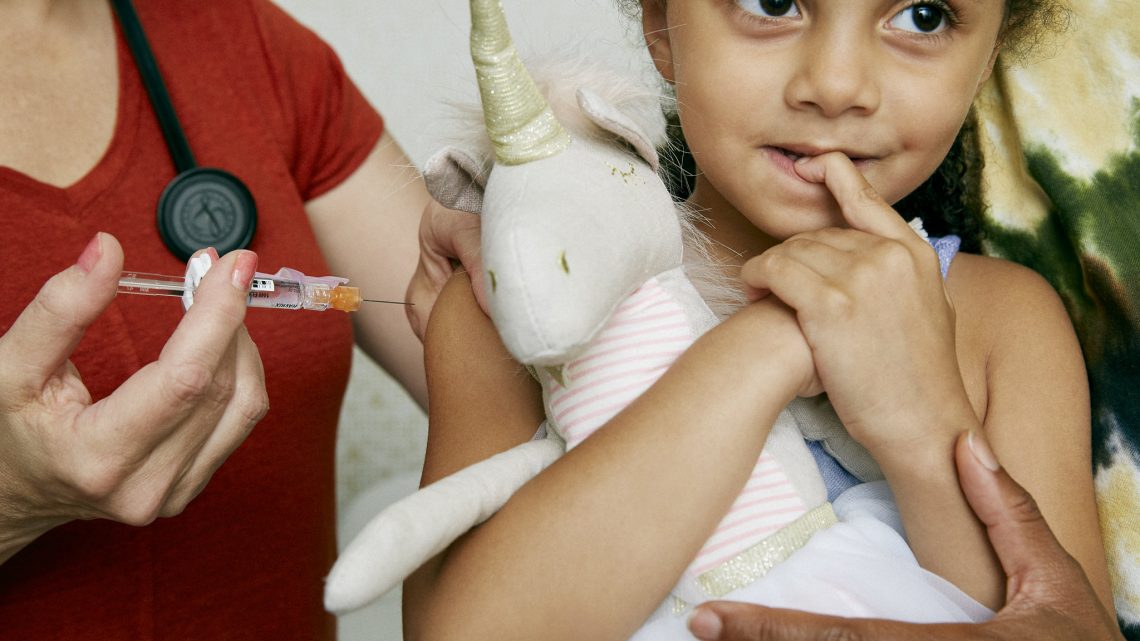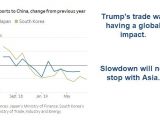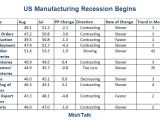
Starting This Week, 26,000 Unvaccinated Kids Have to Get Shots to Attend School in New York
September 3, 2019As children head to school this fall, the number of measles cases in New York has slowed to a trickle, and some officials are cautiously optimistic that they have seen the worst of the outbreak, which largely affected Orthodox Jewish families who avoided immunizations.
But even though the New York outbreak—which has sickened nearly 900 people in 2019 so far and accounted for three-quarters of all cases nationwide—may finally be fading, school vaccination requirements remain a contentious issue.
In June, Gov. Andrew Cuomo signed legislation repealing religious vaccination exemptions for attending school. In addition, state officials this month tightened the rules for physicians to grant exemptions from school vaccinations for medical reasons.
“Vaccination is critically important, I can’t stress that enough,” said Aaron Glatt, chief of infectious diseases and the hospital epidemiologist at South Nassau Communities Hospital on Long Island, who is also a rabbi. “Having said that, I don’t like it when the government gets involved in people’s personal religion. But I’m not saying it wasn’t necessary.”
Many of the measles cases have occurred among Orthodox Jewish families in New York City and suburban Rockland County whose children attend religious schools.
In April, the New York City Department of Health and Mental Hygiene announced that Brooklyn yeshivas and day care centers serving the Orthodox Jewish community must exclude unvaccinated children or the school could face fines or closure. Subsequently, New York City Mayor Bill de Blasio declared a public health emergency in parts of Brooklyn and threatened $1,000 fines for people who might have been exposed to infected patients and had not received the measles-mumps-rubella vaccine.
As a result, 12 schools, day care centers or other programs were closed, while others were fined, said Demetre Daskalakis, the city health department’s deputy commissioner of disease control. In addition, a few hundred people received violations for being unvaccinated. Some individuals’ cases were dismissed, he said, others paid fines.
Heading into the new school year, all schools have reopened with corrective action plans, he said.
Every state allows medical exemptions from school vaccination requirements, and 15 states allow exemptions for philosophical reasons, according to the National Conference of State Legislatures. With the change in its law, New York joins four states that don’t permit religious exemptions: California, Maine, Mississippi and West Virginia.
This year, 1,215 cases of measles have been reported in 30 states as of Aug. 22, the highest number since 1992, according to the Centers for Disease Control and Prevention.
There were no new cases of measles in August in New York City, which has accounted for about two-thirds of cases statewide. Ten new cases were reported outside the city, said Jill Montag, a spokeswoman for the state Department of Health.
“We’re guardedly optimistic,” Daskalakis said.
The Jewish faith doesn’t discourage vaccinations.
“Measles is not a religious issue,” Glatt said. “I don’t think any religion objects to vaccinations from a religious point of view.”
Still, 26,217 students in public, private and religious schools, child care centers, nursery schools and prekindergarten programs had religious exemptions from school vaccine requirements in the 2017-18 school year, according to the state health department. Another 4,571 had medical exemptions.
Measles is highly contagious. Droplets from an infected person can linger in the air or on a surface for hours. Ninety percent of people who are exposed and susceptible to the disease will develop it. Measles complications can be serious, including pneumonia and encephalitis.
When large numbers of people in a community are immunized against a communicable disease like measles, the disease can’t spread easily from person to person, and the whole community is said to have “herd immunity.” Even people who are unvaccinated are less likely to become infected because they’re surrounded by people who are protected.
In order to achieve herd immunity for measles, roughly 90 percent to 95 percent of people need to be immune. In 2017, the overall vaccine coverage level was 92.7 percent for children between 19 and 35 months old, according to the CDC. But the rate varied, and 11 states had levels below 90 percent.
Widespread vaccination programs were highly effective at reducing the number of infections, which reached up to 4 million people annually before the vaccine was introduced in 1963. In 2000, the disease was considered to have been eliminated in the United States.
But measles has crept back in recent years, as people have grown complacent about the need to vaccinate or opted against it based on discredited claims that the shots cause health problems rather than prevent them.
Objections to vaccination are primarily driven by fear rather than religion, said Dr. Arthur Fougner, president of the Medical Society of the State of New York, an organization for New York physicians.
While the U.S. Constitution protects the free exercise of religion, the state has a compelling interest in protecting public health and safety, including by excluding children from school if they haven’t received required vaccinations.
After Cuomo signed the law repealing the religious exemption, two attorneys representing 55 families in New York who had religious exemptions filed suit in New York State Supreme Court challenging the law’s constitutionality.
One of the lawyers, Robert F. Kennedy Jr., is a member of the prominent Democratic family of politicians and a well-known anti-vaccine activist who has spread long-disproven theories about vaccine links to autism, among other things. The other attorney, Michael Sussman, is a civil rights lawyer.
State Supreme Court Judge Denise Hartman ruled against the plaintiffs last week.
Sussman said he would appeal the decision, seeking “a hearing as promptly as possible.”
In the meantime, unvaccinated kids will have 14 days after school starts to receive their first dose of required vaccines, and 30 days to schedule follow-up appointments.
Kaiser Health News (KHN) is a nonprofit news service covering health issues. It is an editorially independent program of the Kaiser Family Foundation that is not affiliated with Kaiser Permanente.
Sign up for our newsletter to get the best of VICE delivered to your inbox daily.


